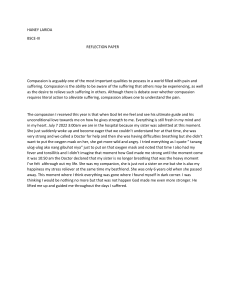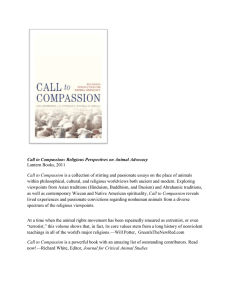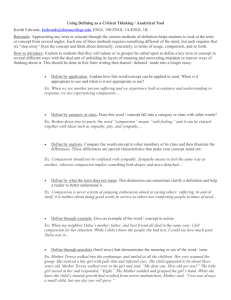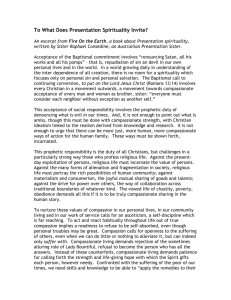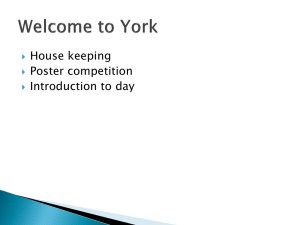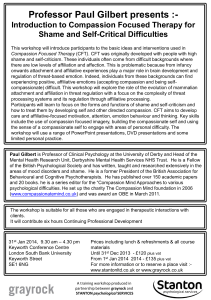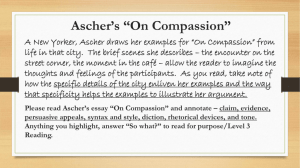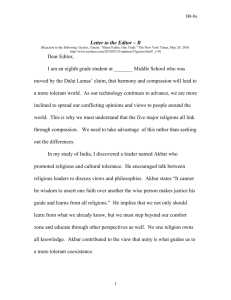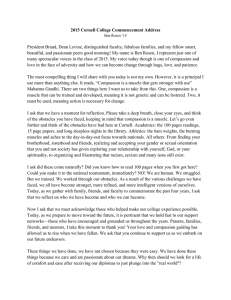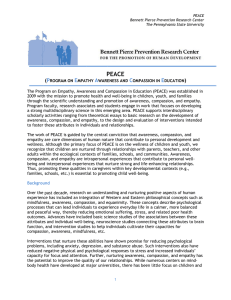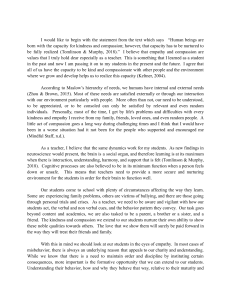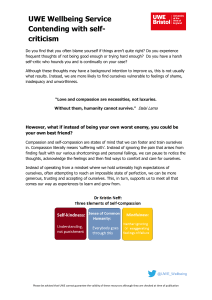Introduction to Compassion – Writing Exercise #1
advertisement
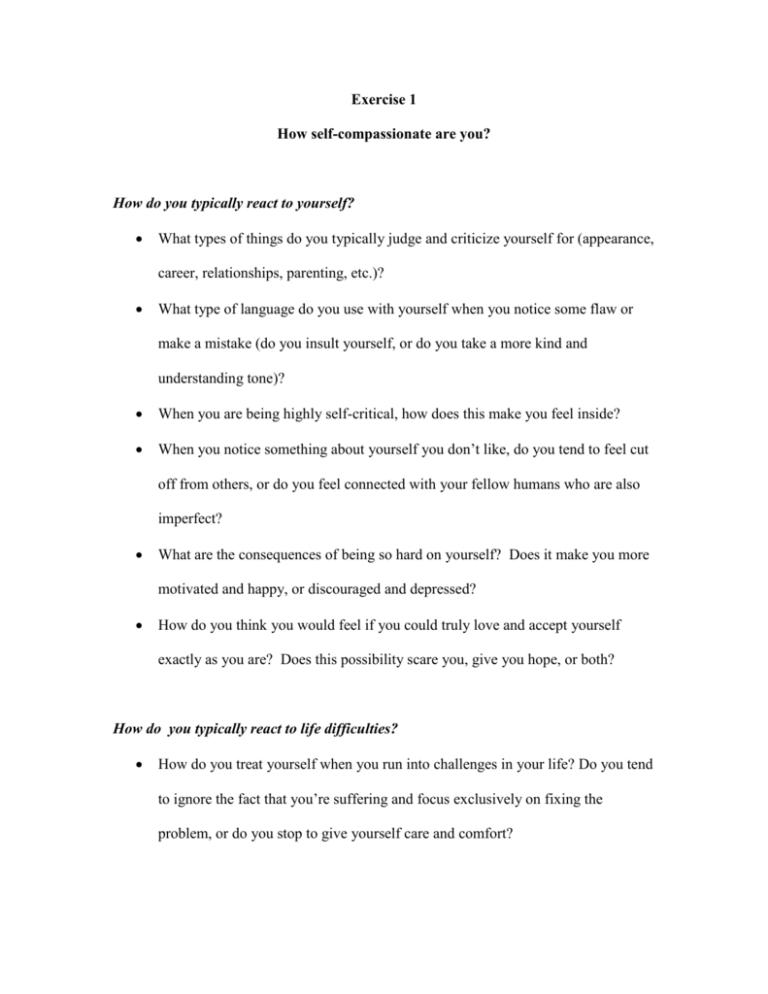
Exercise 1 How self-compassionate are you? How do you typically react to yourself? What types of things do you typically judge and criticize yourself for (appearance, career, relationships, parenting, etc.)? What type of language do you use with yourself when you notice some flaw or make a mistake (do you insult yourself, or do you take a more kind and understanding tone)? When you are being highly self-critical, how does this make you feel inside? When you notice something about yourself you don’t like, do you tend to feel cut off from others, or do you feel connected with your fellow humans who are also imperfect? What are the consequences of being so hard on yourself? Does it make you more motivated and happy, or discouraged and depressed? How do you think you would feel if you could truly love and accept yourself exactly as you are? Does this possibility scare you, give you hope, or both? How do you typically react to life difficulties? How do you treat yourself when you run into challenges in your life? Do you tend to ignore the fact that you’re suffering and focus exclusively on fixing the problem, or do you stop to give yourself care and comfort? Do you tend to get carried away by the drama of the situation, so that you make a bigger deal out of it than you need to, or do you tend to keep things in balanced perspective? Do you tend to feel cut off from others when things go wrong, with the irrational feeling that everyone else is having a better time of it then you, or do you get in touch with the fact that all humans experience hardship in their lives? 3 COMPONENTS OF COMPASSION: Mindfulness. This will mainly involve bring awareness to the painful emotions that arose due to your self-judgment or difficult circumstances. Write about how you felt: sad, ashamed, frightened, stressed, and so on. As you write, try to be accepting and non-judgmental of your experience, not belittling it nor making it overly dramatic. (For example, “I was frustrated because she was being so slow. I got angry, over-reacted, and felt foolish afterwards.”) Common Humanity. Write down the ways in which your experience was connected to the larger human experience. This might include acknowledging that being human means being imperfect, and that all people have these sorts of painful experiences. (“Everyone over-reacts sometimes, it’s only human.”) You might also want to think about the various causes and conditions underlying the painful event. (“My frustration was exacerbated by the fact that I was late for my doctor’s appointment across town and there was a lot of traffic that day. If the circumstances had been different my reaction probably would have been different.”) Kindness. Write yourself or some else in your life, some kind, understanding, words of comfort. Let yourself know that you care about yourself, adopting a gentle, reassuring tone. (It’s okay. You messed up but it wasn’t the end of the world. I understand how frustrated you were and you just lost it. Maybe you can try being extra patient and generous to any wait-staff this week…”) Practicing these 3 components of compassion can take many forms and many types of practices. Compassion is cultivated by developing a compassionate awareness of your own and the suffering of others, developing an intention to care for that suffering. Sometimes we do this with ourselves; sometimes we need to do this with and for others. Which of those you need to develop most is something you can discuss in therapy. Try to feel compassion for how difficult it is to be an imperfect human being in this extremely competitive society of ours. Most of us live in cultures that do not emphasize self-compassion, quite the opposite. We’re told that we’re being lazy and self-indulgent if we don’t harshly criticize ourselves. We’re told that no matter how hard we try, our best just isn’t good enough. It’s time for something different. We can all benefit by learning to be more compassionate, and now is the perfect time to start. Christine Neff, PhD, Self Compassion (2011) Modified Mark Sisti
